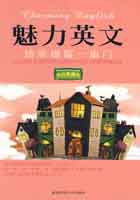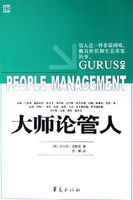IN THE MORNING he wondered if all that he could call to mind were part of a waking or a sleeping vision.
He was soon reminded. A chorus of questions greeted him when he appeared at breakfast.
"You certainly had a long talk with the boss last night," began the American. "We meant to wait up for you, but we got tired. What sort of a guy is he?"
"Did he say anything about the porters?" asked Mallinson eagerly.
"I hope you mentioned to him about having a missionary stationed here," said Miss Brinklow.
The bombardment served to raise in Conway his usual defensive armament."I'm afraid I'm probably going to disappoint you all,"he replied, slipping easily into the mood."I didn't discuss with him the question of missions;he didn't mention the porters to me at all;and as for his appearance, I can only say that he's a very old man who speaks excellent English and is quite intelligent."
Mallinson cut in with irritation:"The main thing to us is whether he's to be trusted or not. Do you think he means to let us down?"
"He didn't strike me as a dishonorable person."
"Why on earth didn't you worry him about the porters?"
"It didn't occur to me."
Mallinson stared at him incredulously. "I can't understand you, Conway. You were so damned good in that Baskul affair that I can hardly believe you're the same man. You seem to have gone all to pieces."
"I'm sorry."
"No good being sorry. You ought to buck up and look as if you cared what happens."
"You misunderstand me. I meant that I was sorry to have disappointed you."
Conway's voice was curt, an intended mask to his feelings, which were, indeed, so mixed that they could hardly have been guessed by others. He had slightly surprised himself by the ease with which he had prevaricated;it was clear that he intended to observe the High Lama's suggestion and keep the secret. He was also puzzled by the naturalness with which he was accepting a position which his companions would certainly and with some justification think traitorous;as Mallinson had said, it was hardly the sort of thing to be expected of a hero. Conway felt a sudden half-pitying fondness for the youth;then he steeled himself by reflecting that people who hero-worship must be prepared for disillusionments. Mallinson at Baskul had been far too much the new boy adoring the handsome games-captain, and now the games-captain was tottering if not already fallen from the pedestal. There was always something a little pathetic in the smashing of an ideal, however false;and Mallinson's admiration might have been at least a partial solace for the strain of pretending to be what he was not. But pretense was impossible anyway. There was a quality in the air of Shangri-La—perhaps due to its altitude—that forbade one the effort of counterfeit emotion.
He said:"Look here, Mallinson, it's no use harping continually on Baskul. Of course I was different then—it was a completely different situation."
"And a much healthier one in my opinion. At least we knew what we were up against."
"Murder and rape—to be precise. You can call that healthier if you like."
The youth's voice rose in pitch as he retorted:"Well, I do call it healthier—in one sense. It's something I'd rather face than all this mystery business." Suddenly he added: "That Chinese girl, for instance—how did she get here? Did the fellow tell you? "
"No. Why should he?"
"Well, why shouldn't he? And why shouldn't you ask, if you had any interest in the matter at all? Is it usual to find a young girl living with a lot of monks? "
That way of looking at it was one that had scarcely occurred to Conway before."This isn't an ordinary monastery,"was the best reply he could give after some thought.
"My God, it isn't!"
There was a silence, for the argument had evidently reached a dead-end. To Conway the history of Lo-Tsen seemed rather far from the point;the little Manchu lay so quietly in his mind that he hardly knew she was there. But at the mere mention of her Miss Brinklow had looked up suddenly from the Tibetan grammar which she was studying even over the breakfast table(just as if, thought Conway, with secret meaning, she hadn't all her life for it). Chatter of girls and monks reminded her of those stories of Indian temples that men missionaries told their wives, and that the wives passed on to their unmarried female colleagues.
"Of course," she said between tightened lips, "the morals of this place are quite hideous—we might have expected that." She turned to Barnard as if inviting support, but the American only grinned.
"I don't suppose you folks'd value my opinion on a matter of morals,"he remarked dryly. "But I should say myself that quarrels are just as bad. Since we've gotter be here for some time yet, let's keep our tempers and make ourselves comfortable."
Conway thought this good advice, but Mallinson was still unplacated. "I can quite believe you find it more comfortable than Dartmoor," he said meaningly.
"Dartmoor? Oh, that's your big penitentiary? —I get you. Well, yes, I certainly never did envy the folks in them places. And there's another thing, too—it don't hurt when you chip me about it. Thick-skinned and tender-hearted, that's my mixture."
Conway glanced at him in appreciation and at Mallinson with some hint of reproof; but then abruptly he had the feeling that they were all acting on a vast stage, of whose background only he himself was conscious, and such knowledge, so incommunicable, made him suddenly want to be alone. He nodded to them and went out into the courtyard.
In sight of Karakal misgivings faded, and qualms about his three companions were lost in an uncanny acceptance of the new world that lay so far beyond their guesses. There came a time, he realized, when the strangeness of everything made it increasingly difficult to realize the strangeness of anything; when one took things for granted merely because astonishment would have been as tedious for oneself as for others. Thus far had he progressed at Shangri-La, and he remembered that he had attained a similar though far less pleasant equanimity during his years at the War.
He needed equanimity, if only to accommodate himself to the double life he was compelled to lead. Thenceforward, with his fellow exiles, he lived in a world conditioned by the arrival of porters and a return to India; at all other times the horizon lifted like a curtain, time expanded and space contracted, and the name Blue Moon took on a symbolic meaning, as if the future, so delicately plausible, were of a kind that might happen once in a blue moon only. Sometimes he wondered which of his two lives were the more real, but the problem was not pressing, and again he was reminded of the War, for during heavy bombardments he had had the same comforting sensation that he had many lives, only one of which could be claimed by death.
Chang, of course, now talked to him completely without reserve, and they had many conversations about the rule and routine of the lamasery. Conway learned that during his first five years he would live a normal life, without any special regimen; this was always done, as Chang said,"to enable the body to accustom itself to the altitude, and also to give time for the dispersal of mental and emotional regrets."
Conway remarked with a smile:"I suppose you're certain, then, that no human affection can outlast a five-year absence?"
"It can, undoubtedly," replied the Chinese, "but only as a fragrance whose melancholy we may enjoy."
After the probationary five years, Chang went on to explain, the process of retarding age would begin, and if successful, might give Conway half a century or so at the apparent age of forty—which was not a bad time of life at which to remain stationary.
"What about yourself?" Conway asked. "How did it work out in your case?"
"Ah, my dear sir, I was lucky enough to arrive when I was quite young—only twenty-two. I was a soldier, though you might not have thought it; I had command of troops operating against brigand tribes in the year 1855. I was making what I should have called a reconnaissance if I had ever returned to my superior officers to tell the tale, but in plain truth I had lost my way in the mountains, and of my men only seven out of over a hundred survived the rigors of the climate. When at last I was rescued and brought to Shangri-La I was so ill that extreme youth and virility alone could have saved me."
"Twenty-two,"echoed Conway, performing the calculation."So you're now ninety-seven?"
"Yes. Very soon, if the lamas give their consent, I shall receive full initiation."
"I see. You have to wait for the round figure?"
"No, we are not restricted by any definite age limit, but a century is generally considered to be an age beyond which the passions and moods of ordinary life are likely to have disappeared."
"I should certainly think so. And what happens afterwards? How long do you expect to carry on?"
"There is reason to hope that I shall enter lamahood with such prospects as Shangri-La has made possible. In years, perhaps another century or more."
Conway nodded. "I don't know whether I ought to congratulate you—y o u seem to have been granted the best of both worlds, a long and pleasant youth behind you, and an equally long and pleasant old age ahead. When did you begin to grow old in appearance?"
"When I was over seventy. That is often the case, though I think I may still claim to look younger than my years."
"Decidedly. And suppose you were to leave the valley now, what would happen?"
"Death, if I remained away for more than a very few days."
"The atmosphere, then, is essential?"
"There is only one valley of Blue Moon, and those who expect to find another are asking too much of nature."
"Well, what would have happened if you had left the valley, say, thirty years ago, during your prolonged youth?"
Chang answered: "Probably I should have died even then. In any case, I should have acquired very quickly the full appearance of my actual age. We had a curious example of that some years ago, though there had been several others before. One of our number had left the valley to look out for a party of travelers who we had heard might be approaching. This man, a Russian, had arrived here originally in the prime of life, and had taken to our ways so well that at nearly eighty he did not look more than half as old. He should have been absent no longer than a week (which would not have mattered), but unfortunately he was taken prisoner by nomad tribes and carried away some distance. We suspected an accident and gave him up for lost. Three months later, however, he returned to us, having made his escape. But he was a very different man. Every year of his age was in his face and behavior, and he died shortly afterwards, as an old man dies."
Conway made no remark for some time. They were talking in the library, and during most of the narrative he had been gazing through a window towards the pass that led to the outer world; a little wisp of cloud had drifted across the ridge.
"A rather grim story, Chang," he commented at length. "It gives one the feeling that Time is like some balked monster, waiting outside the valley to pounce on the slackers who have managed to evade him longer than they should."
"Slackers?"queried Chang. His knowledge of English was extremely good, but sometimes a colloquialism proved unfamiliar.
"'Slacker,'" explained Conway, "is a slang word meaning a lazy fellow, a good-for-nothing. I wasn't, of course, using it seriously."
Chang bowed his thanks for the information. He took a keen interest in languages, and liked to weigh a new word philosophically. "It is significant," he said after a pause, "that the English regard slackness as a vice. We, on the other hand, should vastly prefer it to tension. Is there not too much tension in the world at present, and might it not be better if more people were slackers?"
"I'm inclined to agree with you,"Conway answered with solemn amusement.
During the course of a week or so after the interview with the High Lama, Conway met several others of his future colleagues. Chang was neither eager nor reluctant to make the introductions, and Conway sensed a new and to him rather attractive atmosphere in which urgency did not clamor nor postponement disappoint.
"Indeed," as Chang explained, "some of the lamas may not meet you for a considerable time—perhaps years—but you must not be surprised at that. They are prepared to make your acquaintance when it may so happen, and their avoidance of hurry does not imply any degree of unwillingness."
Conway, who had often had similar feelings when calling on new arrivals at foreign consulates, thought it a very intelligible attitude.
The meetings he did have, however, were quite successful, and conversation with men thrice his age held none of the social embarrassments that might have obtruded in London or Delhi. His first encounter was with a genial German named Meister, who had entered the lamasery during the'eighties, as the survivor of an exploring party. He spoke English well, though with an accent.
A day or two later a second introduction took place, and Conway enjoyed his first talk with the man whom the High Lama had particularly mentioned—Alphonse Briac, a wiry, small-statured Frenchman who did not look especially old, though he announced himself as a pupil of Chopin. Conway thought that both he and the German would prove agreeable company. Already he was subconsciously analyzing, and after a few further meetings he reached one or two general conclusions; he perceived that though the lamas he met had individual differences, they all possessed that quality for which agelessness was not an outstandingly good name, but the only one he could think of. Moreover, they were all endowed with a calm intelligence which pleasantly overflowed into measured and well-balanced opinions. Conway could give an exact response to that kind of approach, and he was aware that they realized it and were gratified. He found them quite as easy to get on with as any other group of cultured people he might have met, though there was often a sense of oddity in hearing reminiscences so distant and apparently so casual.
One white-haired and benevolent-looking person, for instance, asked Conway, after a little conversation, if he were interested in the Bront?s. Conway said he was, to some extent, and the other replied:"You see, when I was a curate in the West Riding during the'forties, I once visited Haworth and stayed at the Parsonage. Since coming here I've made a study of the whole Bront? problem—indeed, I'm writing a book on the subject. Perhaps you might care to go over it with me sometime?"
Conway responded cordially, and afterwards, when he and Chang were left together, commented on the vividness with which the lamas appeared to recollect their pre-Tibetan lives. Chang answered that it was all part of the training.
"You see, my dear sir, one of the first steps towards the clarifying of the mind is to obtain a panorama of one's own past, and that, like any other view, is more accurate in perspective. When you have been among us long enough you will find your old life slipping gradually into focus as though a telescope when the lens is adjusted. Everything will stand out still and clear, duly proportioned and with its correct significance. Your new acquaintance, for instance, discerns that the really big moment of his entire life occurred when he was a young man visiting a house in which there lived an old parson and his three daughters."
"So I suppose I shall have to set to work to remember my own big moments?"
"It will not be an effort. They will come to you."
"I don't know that I shall give them much of a welcome,"answered Conway moodily.
But whatever the past might yield, he was discovering happiness in the present. When he sat reading in the library, or playing Mozart in the music room, he often felt the invasion of a deep spiritual emotion, as if Shangri-La were indeed a living essence, distilled from the magic of the ages and miraculously preserved against time and death. His talk with the High Lama recurred memorably at such moments; he sensed a calm intelligence brooding gently over every diversion, giving a thousand whispered reassurances to ear and eye. Thus he would listen while Lo-Tsen marshaled some intricate fugue rhythm, and wonder what lay behind the faint impersonal smile that stirred her lips into the likeness of an opening flower. She talked very little, even though she now knew that Conway could speak her language; to Mallinson, who liked to visit the music room sometimes, she was almost dumb. But Conway discerned a charm that was perfectly expressed by her silences.
Once he asked Chang her history, and learned that she came of royal Manchu stock. "She was betrothed to a prince of Turkestan, and was traveling to Kashgar to meet him when her carriers lost their way in the mountains. The whole party would doubtless have perished but for the customary meeting with our emissaries."
"When did this happen?"
"In 1884. She was eighteen."
"Eighteen then?"
Chang bowed. "Yes, we are succeeding very well with her, as you may judge for yourself. Her progress has been consistently excellent."
"How did she take things when she first came?"
"She was, perhaps, a little more than averagely reluctant to accept the situation—she made no protest, but we were aware that she was troubled for a time. It was, of course, an unusual occurrence—to intercept a young girl on the way to her wedding. … We were all particularly anxious that she should be happy here." Chang smiled blandly. "I am afraid the excitement of love does not make for an easy surrender, though the first five years proved ample for their purpose."
"She was deeply attached, I suppose, to the man she was to have married?"
"Hardly that, my dear sir, since she had never seen him. It was the old custom, you know. The excitement of her affections was entirely impersonal."
Conway nodded, and thought a little tenderly of Lo-Tsen. He pictured her as she might have been half a century before, statuesque in her decorated chair as the carriers toiled over the plateau, her eyes searching the wind-swept horizons that must have seemed so harsh after the gardens and lotus pools of the East. "Poor child!" he said, thinking of such elegance held captive over the years. Knowledge of her past increased rather than lessened his content with her stillness and silence; she was like a lovely cold vase, unadorned save by an escaping ray.
He was also content, though less ecstatically, when Briac talked to him of Chopin, and played the familiar melodies with much brilliance. It appeared that the Frenchman knew several Chopin compositions that had never been published, and as he had written them down, Conway devoted pleasant hours to memorizing them himself. He found a certain piquancy in the reflection that neither Cortot nor Pachmann had been so fortunate. Nor were Briac's recollections at an end;his memory continually refreshed him with some little scrap of tune that the composer had thrown off or improvised on some occasion;he took them all down on paper as they came into his head, and some were very delightful fragments.
"Briac," Chang explained, "has not long been initiated, so you must make allowances if he talks a great deal about Chopin. The younger lamas are naturally preoccupied with the past; it is a necessary step to envisaging the future."
"Which is, I take it, the job of the older ones?"
"Yes. The High Lama, for instance, spends almost his entire life in clairvoyant meditation."
Conway pondered a moment and then said: "By the way, when do you suppose I shall see him again?"
"Doubtless at the end of the first five years, my dear sir."
But in that confident prophecy Chang was wrong, for less than a month after his arrival at Shangri-La Conway received a second summons to that torrid upper room.
Chang had told him that the High Lama never left his apartments, and that their heated atmosphere was necessary for his bodily existence; and Conway, being thus prepared, found the change less disconcerting than before. Indeed, he breathed easily as soon as he had made his bow and been granted the faintest answering liveliness of the sunken eyes. He felt kinship with the mind beyond them, and though he knew that this second interview following so soon upon the first was an unprecedented honor, he was not in the least nervous or weighed down with solemnity. Age was to him no more an obsessing factor than rank or color; he had never felt debarred from liking people because they were too young or too old. He held the High Lama in most cordial respect, but he did not see why their social relations should be anything less than urbane.
They exchanged the usual courtesies, and Conway answered many polite questions. He said he was finding the life very agreeable and had already made friendships.
"And you have kept our secrets from your three companions?"
"Yes, up to now. It has proved awkward for me at times, but probably less so than if I had told them."
"Just as I surmised; you have acted as you thought best. And the awkwardness, after all, is only temporary. Chang tells me he thinks that two of them will give little trouble."
"I dare say that is so."
"And the third?"
Conway replied:"Mallinson is an excitable youth—he's pretty keen to get back."
"You like him?"
"Yes, I like him very much."
At this point the tea-bowls were brought in, and talk became less serious between sips of the scented liquid. It was an apt convention, enabling the verbal flow to acquire a touch of that almost frivolous fragrance, and Conway was responsive. When the High Lama asked him whether Shangri-La was not unique in his experience, and if the Western world could offer anything in the least like it, he answered with a smile: "Well, yes—to be quite frank, it reminds me very slightly of Oxford, where I used to lecture. The scenery there is not so good, but the subjects of study are often just as impractical, and though even the oldest of the dons is not quite so old, they appear to age in a somewhat similar way."
"You have a sense of humor, my dear Conway," replied the High Lama, "for which we shall all be grateful during the years to come."















